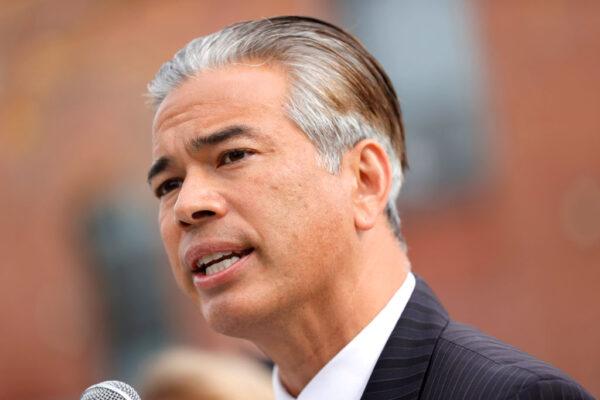After a recent Solano County Superior Court ruling denied a survivor of sex trafficking the right to restitution from her trafficker, California Attorney General Rob Bonta—the state’s chief law officer—recommended this week the court reverse its decision.
Mr. Bonta filed an amicus brief with the court Oct. 23 saying he has “great interest” in the legal issue and is able to assist with his perspective and argument on the matter. In such a brief, the court can consider or ignore Mr. Bonta’s remarks.
“Human trafficking is a heinous crime and survivors deserve our support as they heal," said Mr. Bonta in a press release the same day. “Today’s amicus brief does just that by supporting the right of survivors to receive restitution. This survivor was exploited and abused by her trafficker; it goes beyond reason to deny her restitution to which she is legally entitled.”
At issue is a victim who was forced to perform commercial sex acts, of which she received no payment, by a defendant, Lamar Deshawn Hall, as well as others.
According to Mr. Bonta, the court denied the woman restitution for her lost wages because commercial sex is illegal. But he argued in his brief to the court that its decision was a misinterpretation of law, since the victim was forced into the occupation.
Mr. Bonta argued that regardless of what a person is forced to do, whether it is picking fruit, harvesting marijuana, providing salon services, working as a caretaker or servant, or performing commercial sex, victims in each case lose their freedom and are forced to work for free.

California Attorney General Rob Bonta speaks during a news conference in San Francisco on Nov. 15, 2021. (Justin Sullivan/Getty Images)
Assembly Bill 22, approved by then Gov. Arnold Schwarzenegger in 2005, authorized restitution for lost wages to victims of trafficking. The court, in its decision, created an added requirement that the earnings cannot be the product of commercial sex, since it’s legal, which Mr. Bonta argued against.
“The superior court’s interpretation swallows up the statute and misses its purpose: to allow human trafficking victims ... a chance to recover from the devastating physical, mental and financial harm caused by the defendant,” he wrote in the brief.
In the press release, he also stated that denying the woman in the case restitution for the “work” she was forced to perform has implications that she was at fault, instead of the trafficker.
“It’s imperative that the restitution rights of trafficking victims be enforced so that they have a chance to recover from the devastating physical, mental, and financial impact of this extreme form of abuse,” the press release reads.
In 2021, the National Human Trafficking Hotline—which helps connect victims to services reported 1,300 human trafficking cases in California, the most in the nation at the time. According to the press release, trafficking in the state is most prevalent in hospitality, commercial sex, domestic work, and construction industries, as well as with migrants working in seasonal agricultural, residential care, and in the garment sector.
In response, Mr. Bonta launched the same year two teams within the California Department of Justice, with one covering Northern California and the other Southern California, to work with law enforcement to crack down on the issue.
Other efforts include the San Diego Human Trafficking Task Force, which also works with the DOJ, leading to the arrest of 627 traffickers and 647 victims helped since the work began in 2015, according to the press release.
“Denying recovery to a sex trafficking victim reinforces the stigma that these victims too often face in coming forward in the first place. The California Department of Justice will continue to do its part to combat human trafficking and protect California’s communities,” Mr. Bonta said in the press release.












